The Festival of Tomorrow? "It's really about giving people ownership of and agency in their future," said Dr Rod Hebden.
"That's where it comes from. I want to help bring a lot of opportunities for people in areas of Swindon who don't usually get these opportunities, and I want to give an opportunity for Swindon to shout about the brilliant things that are here.
"It's an arts and science festival. At the beginning it started as out as science because that's my background, but I didn't want to create a festival only for people who liked science. I very deliberately didn't want to call it the Swindon Science Festival because then it would have been just for people interested in science to come, and sounded like it was just about Swindon, when actually this is about everything - and Swindon is the right place to be.
"I think teachers do a brilliant job in challenging circumstances. A lot of that is because of funding and time, and a lot of it is about constrained syllabuses and the way we assess science. I think what that leads to is...Things have changed since I was a kid so I don't pretend that what I experienced is what people experience now, but I would say I went through the whole of my schooling, and in fact got a Masters in Physics, and I don't think in that time I did a day's Physics or Science in my life.
"That's because we were traditionally set up to learn about science and never actually do it. We wren't taught to be curious and creative, we were taught to learn what scientists in the past had learned already and recreate the experiments that they had done. When we did experiments in school, you basically had to recreate an experiment that had been done in the past, and if you got a different answer to what was in the teacher's head or what was in the textbook, you were an idiot and you'd done it wrong! And you kept doing it again and again until you got it right or copied from the people behind you.
"Actually, science isn't about that. Science is about exploring, getting things wrong and doing new things, and unfortunately the way we traditionally were taught science was very much, 'regurgitate facts, learn methods, and just repeat the science that's been done before.' And you never actually did your own experiments until you had left all that.
"In art, we give kids a paintbrush as soon as they can hold one, and before that they paint with their fingers, and whatever they produce we praise it and put it on the fridge. We don't tell them they did art wrong or that they have to understand the history of art and the great artists of the past before they're allowed to make their own art!
"So essentially I think what we end up doing is convincing people implicitly that science is hard, it's dull, it's for people who are very clever and able to pick up these facts, and that it's not creative but we do it because it's important, whereas art is something you can enjoy - it's joyful, it's creative.
"But we sometimes in schooling or in Government policy say that art is all these wonderful things but fundamentally useless to the economy! Both of those ideas of science and art are just wrong. Art is incredibly technical - there's a lot to learn - and people can find it conceptually quite hard, but it's fundamentally good for us as individuals and as a society.
"On the other side, science is incredibly creative and incredibly joyful. The fact that we create these false ideas of science and art means we turn people off science who are creative and curious, quite often. We narrow our field of future scientists to people who are really good at doing the facts and reproducing things."
Rod illustrated his point with a recollection from his own education.
"I foolishly did a PhD! Somebody suggested I should do one or maybe could do one, and I said to my supervisor, 'Do you think I'd be able to?' I was always quite last-minute, just about scraping the grades needed.
"They said, 'I think you'll survive one because you write well, you communicate quite well and you're curious.' Whereas a lot of the students who take PhDs have Firsts, and they're really good at regurgitating stuff, but when you give them a research project, an open-ended project where they have to work it out themselves, they sometimes struggle.
"So I think we unnecessarily narrow our field of future scientists by weeding out people who are curious and creative, and we tell the people who don't do science - STEM - subjects that it's not for them, it's for these boffins and nerds, and we essentially take it away from them. I think that's a cultural gap, and people are made poorer culturally by missing out on the arts and culturally poorer by missing out on science in their lives.
"That becomes a real problem for society in lots of ways. It becomes a problem, obviously, for the economy when we don't produce enough scientists and engineers. That's well understood, but I think, more importantly, it's a problem for society when we start to talk about climate change, for example, and when vested interests throw words like 'uncertainty' or 'disagreement' around, or they describe something as just a theory, completely misunderstanding and misrepresenting what a theory is.
"It becomes a problem when we have a pandemic and people throw around words like 'the science has changed' or 'science doesn't know' - misunderstanding the fact that science is about finding out; it's not about knowing.
"It's a problem when we talk about abortions, it's a problem when we talk about GM crops, when we talk about, I would say, pretty much every aspect of society, and it's a problem, fundamentally, for our democracy if a large proportion of our population are alienated from what science is.
"So we do a lot in the festival for young people, and inspiring the next generation and trying to put it in their hands, but actually a lot of it is talking about people long after education, who are people who don't see science themselves, and saying, 'Actually, we're not going to tell you about science, we're going to talk to you about things you care about. It might be the environment, it might be medicine it might be all sorts of things, which actually science is part of, but we're not telling you to come and see us because you have an interest in science, we want you to come and see us because we have an interest in everything that you care about.'
"It's all things, and we steal that from people when we make science look like an 'other' thing. In Swindon we've got a great history of engineering but we have struggled. Partly because of the lack of a university and the sorts of jobs we've had in the past that we have some of the lowest access to higher education in the country. Far lower than the natural average and particularly in certain areas.
"That's partly because there's a lack of role models in Swindon - I have discovered with my old children that they won't be interested in something because you tell them it's interesting, they get interested in something because you expose them to it and it sparks something in them.
"If you don't expose kids to the possibilities of further education, higher education and what science and engineering is really like, why would they ever aspire to do that.
"One of the things I really love to do is have real working scientists and artists and people who are doing creative things at the festival, that people can interact with and meet and see that they are normal people who are just passionate about something and trying to make a difference in the world."
Rod was born in Bangor, North Wales to parents from Lancashire. His father, a civil engineer, had moved there for professional reasons.
A degree in Physics at Sheffield, was followed by a PhD and a stint in the automotive industry, but he says his true interest in science did not come until later, and was inspired by reading Bill Bryson's A Short History of Everything.
"That's what sparked my interest in science long after my degree, that book, because he made it about science and he made it about exploration.
"On the back of that I realised I really enjoyed writing, I really enjoyed presenting and communicating, and so I did a bit of science writing and then I did a Masters in Science Communication at Imperial College off the back of that."
Museum work followed, and what became the Festival of Tomorrow was prompted by Ian Surtees, a senior figure at STEAM in Swindon.
"I just wanted to create something that felt like an exciting and fun thing that everyone's going to be interested in and accessible to all, and something that would enable us to have the opportunity to explore all sorts of areas - any type of science, any type of technology; arts and creativity - bring everything together."
A particularly successful innovation of the festival has been bringing working scientists to schools to inspire young people - taking the festival to the pupils rather than the other way round.
"We don't make them come to us and choose 50 kids and get permissions signed by parents. We go to them, either online or into the schools.
"We were really trying to make sure we were getting rid of those hurdles to stop people engaging, and we're really pleased to see the response from that. We have a really huge proportion of our schoolchildren who come from areas of Swindon with the least access to higher education. The feedback from teachers has been amazing.
"I think what I'd love to do more in the future is to understand better the challenges teachers have now, because I don't believe they are the same as when I was a kid."
This year's festival was the most successful yet, with more than 47,000 people taking part.
"It's become a real community, particularly this year, and it's really lovely to feel that the community has embraced it with all the different organisations getting involved and supporting the local community.
"The other step change I want to make is to really establish it as being one of those festivals that is seen by organisations outside of Swindon as being nationally significant."

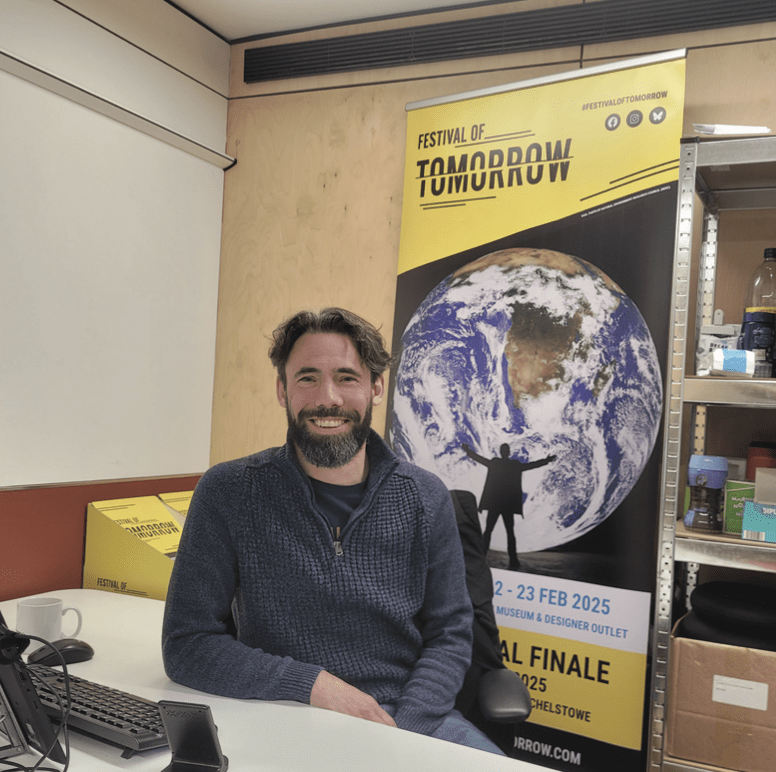
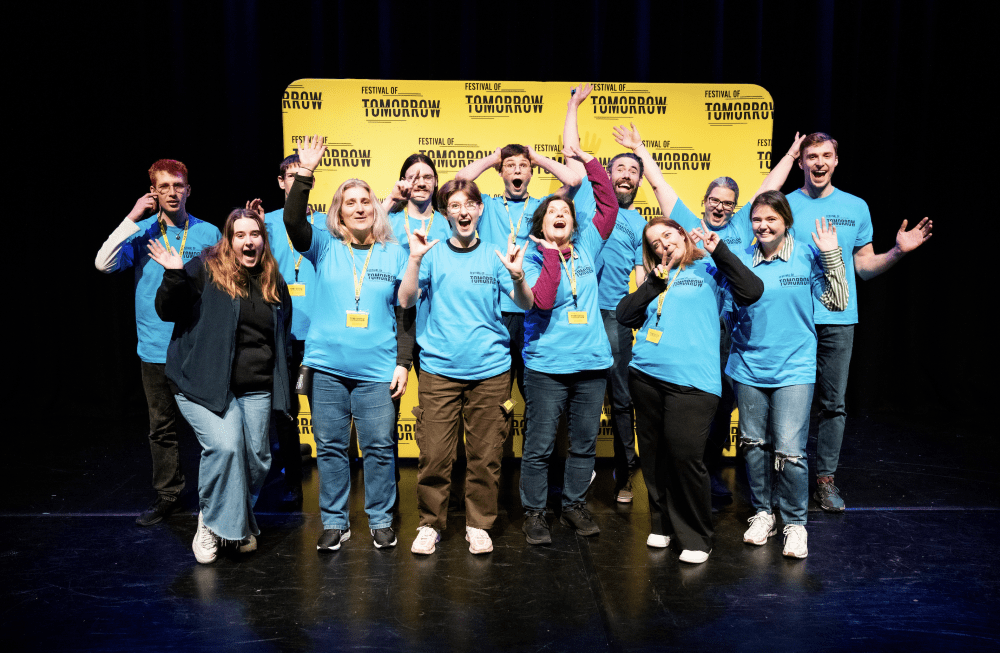
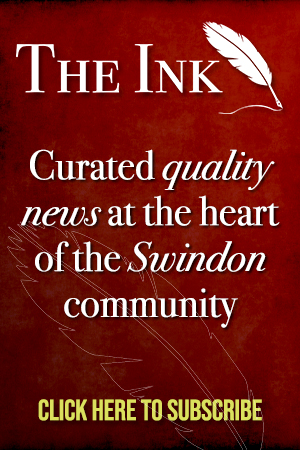
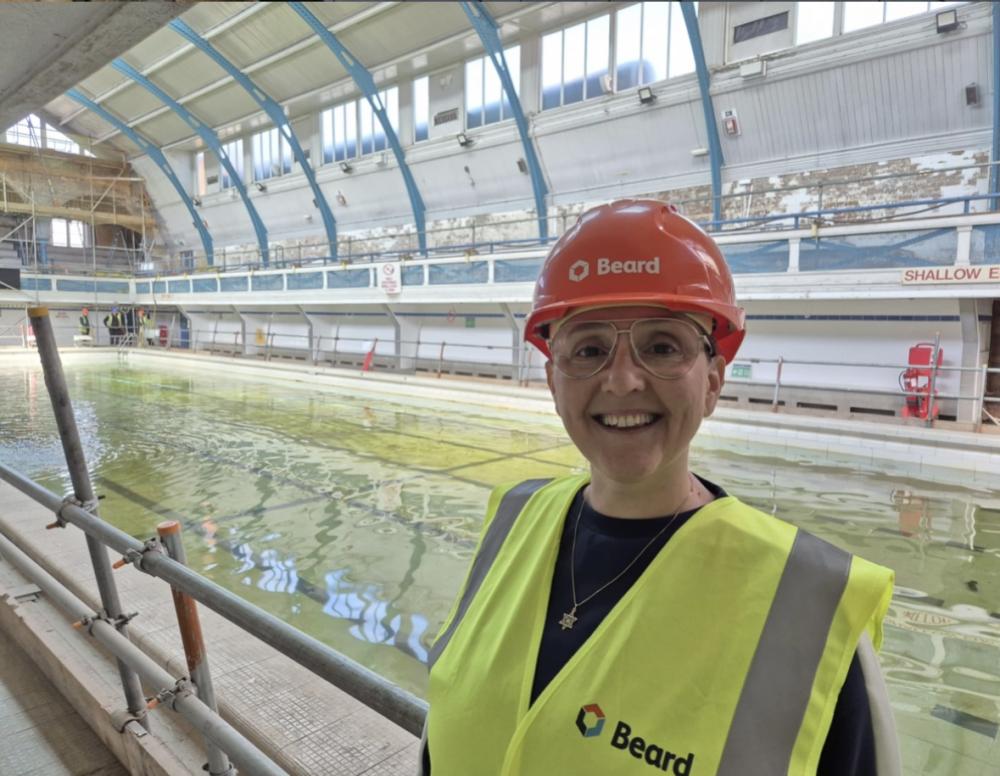


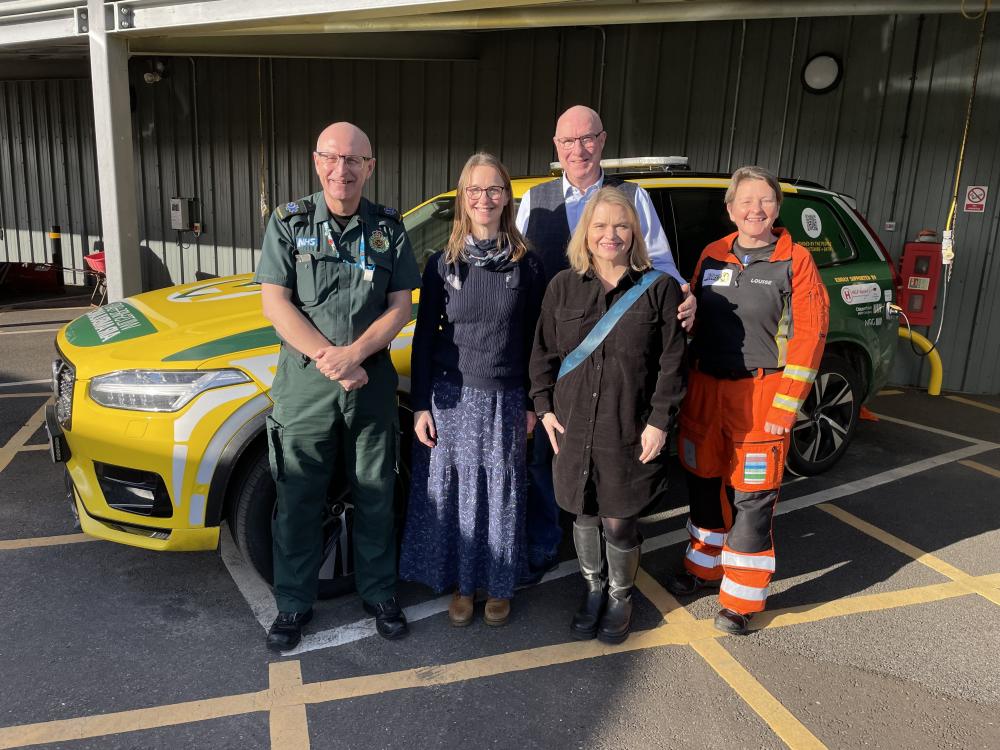
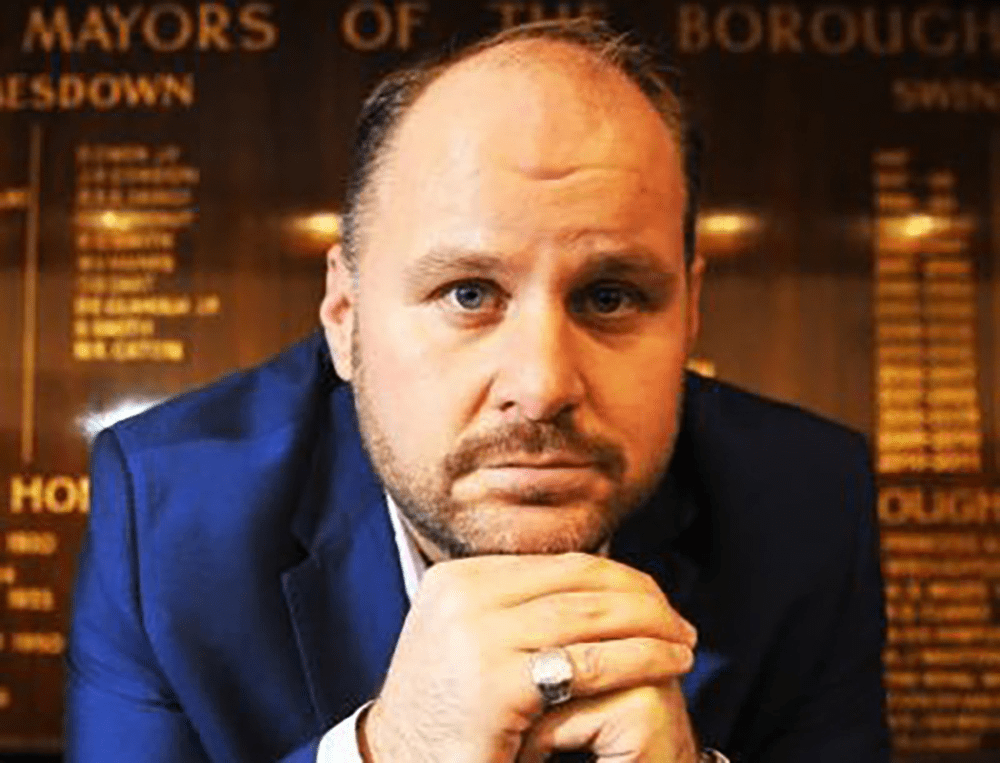
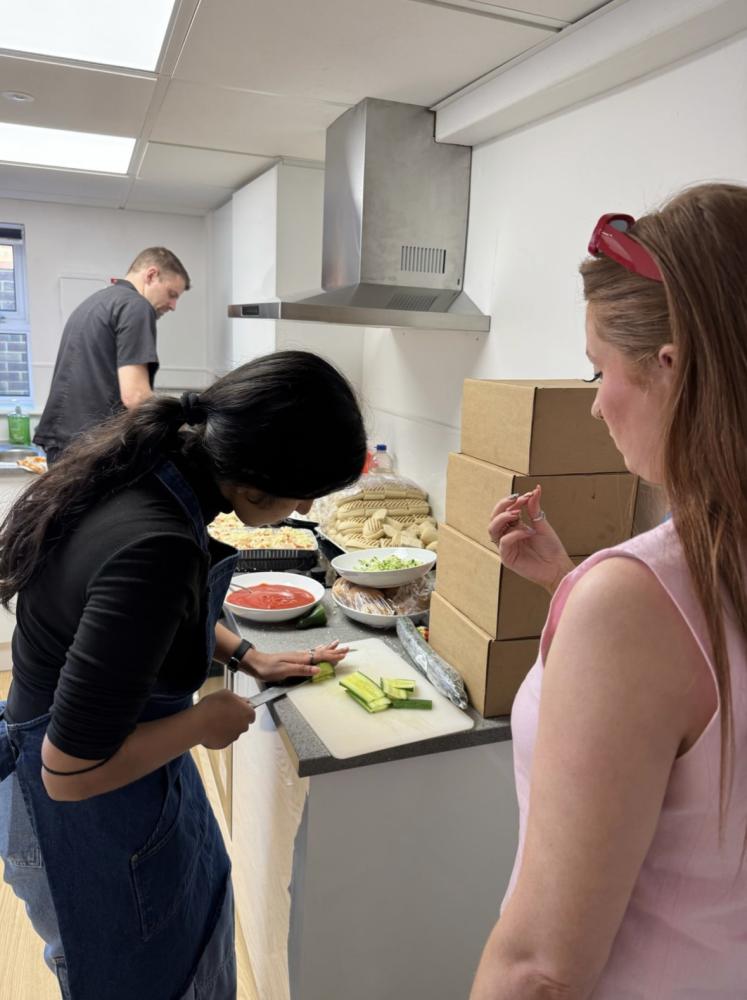
Your Comments
Be the first to comment on this article
Login or Register to post a comment on this article